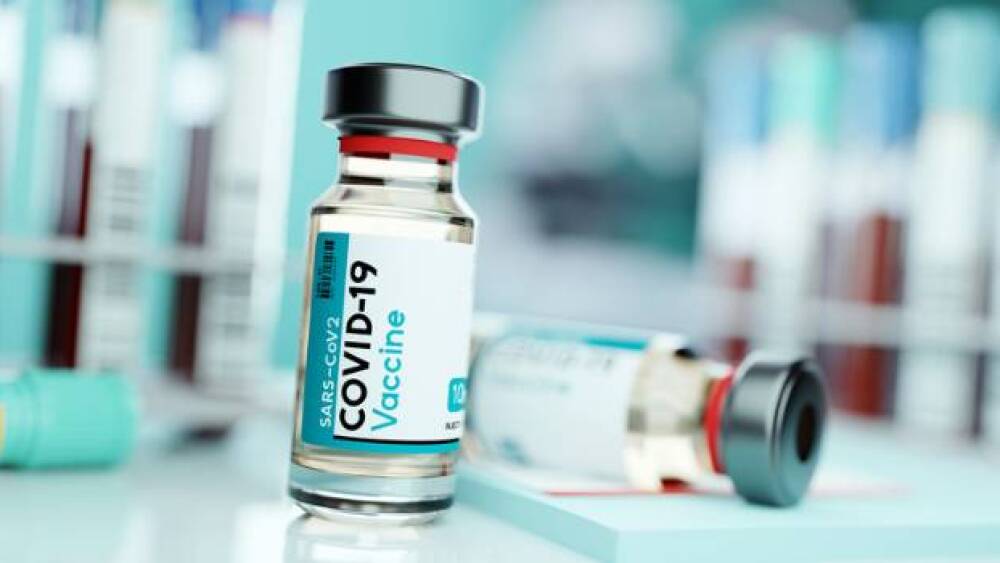Companies are still developing and refining treatments and preventions for COVID-19, but not all of them are approved or authorized. Here’s a look at the latest COVID-19 news.
Companies are still developing and refining treatments and preventions for COVID-19, but not all of them are approved or authorized. Here’s a look at the latest COVID-19 news.
FDA Declines EUA for NRX’s Zyesami
NRx Pharmaceuticals announced the U.S. Food and Drug Administration declined to grant an Emergency Use Authorization (EUA) for Zyesami (aviptadil) for a subgroup of patients with critical COVID-19. The subgroup of patients also received Gilead Sciences’ remdesivir but continued to progress.
“As previously communicated, since the futility news of the ACTIV-3b/TESICO Study with Zyesami, our team has already been highly focused on the development of NRX-101 for bipolar depression in patients with Acute and Sub-Acute Suicidality,” Robert Besthof, interim CEO of NRx, said in a statement. “Though disappointing, this decision by the FDA is not unexpected, given that they had already recently declined Breakthrough Therapy Designation for Zyesami. We will evaluate the options for Zyesami in COVID-19 respiratory failure and other lung disorders once we receive the full data set from the National Institutes of Health (NIH).”
FDA Recommends Booster Update for Omicron BA.4 and BA.5
After the FDA’s vaccine advisory group recommended a fall booster targeting the Omicron variant of SARS-CoV-2, the agency also recommended that companies manufacturing vaccines should update their boosters to target the Omicron subvariants BA.4 and BA.5. Further, the recommendation is for a bivalent vaccine that includes the original vaccines but adds in an Omicron BA.4/5 spike protein component. For their part, Pfizer, BioNTech and Moderna are already in the process of doing this.
Supreme Court Justice Thomas Argues COVID-19 Vaccines Use Cells from Aborted Children
In a dissenting opinion on Thursday, Supreme Court Justice Clarence Thomas suggested that COVID-19 vaccines were developed using cells from “aborted children.” Some vaccines developed in the 1970s and 1980s do use fetal cell lines early in the development process that originated from aborted cells, but the vaccines themselves do not contain cells from aborted children. The cells have grown multiple times over the last 40 or 50 years and do not contain any original fetal tissue. This practice is used in the development of all vaccines, not just the COVID-19 vaccines.
In his dissent, Thomas wrote that they “object on religious ground to all available COVID-19 vaccines because they were developed using cell lines derived from aborted children.”
The dissent was for a decision the Supreme Court made not to take up a legal challenge by New York health care workers who opposed the state’s vaccine mandate on religious grounds.
Oxford Biomedica Inks Deal to Manufacture AstraZeneca’s COVID-19 Vaccine
UK-based Oxford Biomedica inked a three-year deal with AstraZeneca to manufacture the AstraZeneca-Oxford University COVID-19 vaccine beyond 2022. In April, Oxford Biomedica indicated it had manufactured more than 100 million doses of the vaccine since its original deal with AstraZeneca in September 2020. Under the terms of the new arrangement, AstraZeneca will have access to Oxford Biomedica’s Oxbox manufacturing plant.
“White it is positive that AstraZeneca wanted a longer-term relationship with Oxford Biomedica, and that uncertainty is now diminished, we had expected a bigger deal,” analysts for RBC wrote in a note to investors.
Oxford Biomedica expects to record about £30 million from AstraZeneca in this financial year.
“I am delighted that our close partnership with AstraZeneca has been extended,” Dave Doliveux, DVM, MBA, chair and interim chief executive officer of Oxford Biomedica, said. “I am proud of the work of all our colleagues at Oxford Biomedica that has enabled us to deliver more than 100 million doses of lifesaving COVID-19 vaccine. While contributing to the efforts to fight the pandemic, this has also demonstrated Oxford Biomedica’s ability to expand the scope of our innovative process development services and deliver high-performing manufacturing solutions beyond lentiviral vectors. We look forward to work closely with AstraZeneca and execute on our strategy to become a global leader across all viral vectors, enabling Cell and Gene Therapy companies to deliver their life-changing therapies to patients.”





